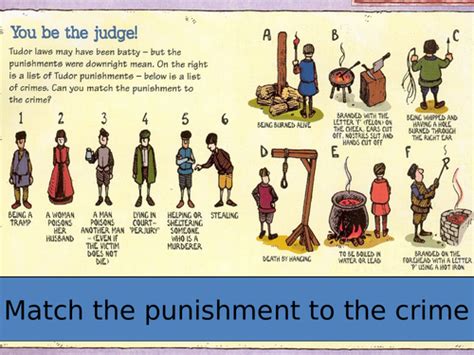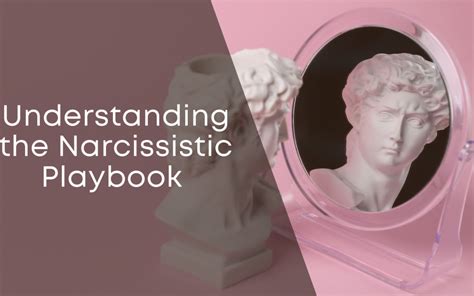
A woman, identified only as “Wondering,” is contemplating leaving her husband of many years after reconnecting with a high school sweetheart at their 30th reunion, sparking a renewed romantic interest and an ethical dilemma about the future of her marriage.
Wondering, grappling with unexpected feelings for her former flame, now seeks guidance from advice columnist Dear Abby regarding whether to pursue this rekindled relationship or remain committed to her husband. According to Wondering, the connection with her high school sweetheart, now divorced, felt immediate and powerful, prompting her to question the happiness and fulfillment of her current marriage. The situation raises complex questions about long-term relationships, the allure of past loves, and the potential consequences of pursuing romantic alternatives after decades of commitment. Abby’s advice will likely address the need for careful consideration, open communication, and a thorough evaluation of the current marriage before making any drastic decisions.
The letter published in Dear Abby details Wondering’s predicament after attending her high school reunion. She writes, “I recently attended my 30th high school reunion. I reconnected with a guy I was crazy about back then. He is now divorced. The feelings I had for him then came rushing back, and they were mutual.” This sudden resurgence of past emotions has led Wondering to question her present life. “I have been married for many years, but I have to admit I’m not really happy. Should I leave my husband and see where this could go?” she asks Abby.
The situation presents a complex ethical and emotional challenge. Wondering faces the temptation of a potentially exciting new relationship set against the backdrop of a long-term marriage that she admits is lacking in fulfillment. The question is whether the promise of renewed passion justifies the potential upheaval and pain that leaving her husband would cause.
Examining the Allure of Rekindled Romance
Rekindled romances, particularly those originating from high school relationships, often carry a unique appeal. They represent a connection to a simpler, perhaps more idealized, time in one’s life. The nostalgia factor is significant, as these relationships are associated with youth, innocence, and unbridled passion. Reunions, as in Wondering’s case, can act as catalysts, stripping away the layers of life’s experiences and bringing back the raw emotions of adolescence.
However, it is crucial to distinguish between the romanticized memory of a past relationship and the reality of a potential future together. People change significantly over 30 years. The individuals they were in high school may bear little resemblance to who they are now. Their values, priorities, and life goals may have evolved in different directions.
In Wondering’s situation, the fact that her high school sweetheart is now divorced adds another layer of complexity. It is essential to understand the reasons behind his divorce and whether those reasons might present challenges in a new relationship. Furthermore, the initial attraction may be fueled by novelty and the excitement of the unknown. It is crucial to assess whether a deeper, more sustainable connection exists beyond the initial spark.
The Importance of Evaluating the Existing Marriage
Before considering the possibility of a new relationship, Wondering must conduct a thorough and honest evaluation of her current marriage. She admits that she is “not really happy,” but it is essential to understand the underlying reasons for this unhappiness. Is it a lack of communication, intimacy, shared interests, or something else? Have efforts been made to address these issues, such as couples therapy or open conversations with her husband?
It is possible that the re-emergence of her high school sweetheart has simply brought underlying dissatisfaction with her marriage to the surface. The problems may have existed for years, but the possibility of a new relationship has provided a focal point for her discontent.
Therefore, Wondering must determine whether her marriage is salvageable. Can the issues be addressed through communication, compromise, and a renewed commitment from both partners? Or are the problems so deeply ingrained that separation is the only viable option?
The Ethical Considerations
The decision to leave a marriage is rarely easy, and it carries significant ethical considerations. Wondering has a responsibility to her husband, who has likely invested years of his life in their relationship. He deserves to be treated with respect and honesty, regardless of the outcome.
Pursuing a relationship with her high school sweetheart while still married would be a breach of trust and a betrayal of her marital vows. It would also be unfair to her husband, who would be kept in the dark about her true feelings and intentions.
Therefore, Wondering must be transparent with her husband about her feelings and her desire to explore other options. This conversation may be difficult and painful, but it is essential for maintaining integrity and ensuring that her husband is treated fairly.
Potential Consequences of Leaving the Marriage
Leaving a marriage can have profound consequences, both emotionally and practically. Wondering must consider the potential impact on her husband, her family, and herself. Divorce can be a stressful and emotionally draining process, leading to feelings of guilt, sadness, and anger.
There may also be financial implications. Divorce can involve the division of assets, spousal support, and legal fees. Wondering must be prepared for the possibility of a significant change in her financial situation.
Furthermore, leaving her marriage may affect her relationships with family and friends. Some may support her decision, while others may disapprove. She must be prepared to navigate these social complexities and maintain her own emotional well-being.
The Risks of Rekindled Romance
Even if Wondering decides to leave her marriage, there is no guarantee that a relationship with her high school sweetheart will be successful. As mentioned earlier, people change over time, and the individuals they were in high school may no longer be compatible.
The initial attraction may fade, and underlying differences may emerge. The relationship may also be complicated by past baggage, such as unresolved issues from their high school romance or the circumstances surrounding his divorce.
Therefore, Wondering must approach a potential relationship with her high school sweetheart with caution and realistic expectations. It is essential to get to know him as he is now, rather than relying on memories of the past.
Dear Abby’s Potential Advice
Given the complexities of the situation, Dear Abby is likely to offer a balanced and pragmatic perspective. She may advise Wondering to:
- Evaluate her marriage: Assess the underlying issues in her marriage and determine whether they can be addressed.
- Communicate with her husband: Be honest with her husband about her feelings and her desire to explore other options.
- Seek therapy: Consider individual or couples therapy to gain clarity and develop coping strategies.
- Proceed with caution: Approach a potential relationship with her high school sweetheart with realistic expectations and a focus on getting to know him as he is now.
- Consider the consequences: Weigh the potential consequences of leaving her marriage, both emotionally and practically.
- Prioritize honesty and integrity: Make decisions that are consistent with her values and principles.
Ultimately, the decision of whether to leave her husband is Wondering’s alone. She must weigh the potential benefits and risks, consider the ethical implications, and make a choice that she believes is in her best interest. However, Dear Abby’s advice can provide valuable guidance and support during this difficult time.
The situation highlights the complexities of long-term relationships and the enduring power of past connections. It serves as a reminder that relationships require ongoing effort, communication, and a willingness to adapt to change. It also underscores the importance of making informed and ethical decisions, particularly when the stakes are high.
Expanding on the Nuances of Long-Term Relationships
Long-term relationships, such as marriages, are dynamic entities that evolve over time. The initial spark of attraction and passion often gives way to a deeper sense of companionship, commitment, and shared history. However, this transition can also present challenges.
As individuals age, their priorities, values, and life goals may shift. They may grow apart from their partners, leading to feelings of dissatisfaction and disconnection. This is particularly true if couples fail to communicate openly and address emerging issues.
The demands of daily life, such as work, family responsibilities, and financial pressures, can also strain relationships. Couples may find themselves spending less time together, neglecting their emotional needs, and losing sight of the things that initially brought them together.
Furthermore, external factors, such as the presence of other attractive individuals, can create temptation and challenge the stability of a long-term relationship. This is where the allure of a rekindled romance can be particularly strong.
Exploring the Psychology of Nostalgia
Nostalgia plays a significant role in the appeal of rekindled romances. Nostalgia is a sentimental longing or wistful affection for the past, typically for a period or place with happy personal associations. It often involves a selective memory, focusing on the positive aspects of the past while downplaying the negative ones.
In the context of high school relationships, nostalgia can create a romanticized view of the past. Individuals may remember their high school sweetheart as the perfect partner, forgetting the challenges and conflicts that they experienced at the time.
This romanticized view can be particularly appealing when individuals are feeling dissatisfied with their present lives. The past can seem like a simpler, happier time, free from the complexities and responsibilities of adulthood.
However, it is crucial to recognize that nostalgia is often an idealized representation of the past. The reality of the past may not align with the romanticized memory. Therefore, it is essential to approach rekindled romances with a healthy dose of skepticism and a realistic understanding of the potential challenges.
The Role of Communication in Relationships
Communication is the cornerstone of any successful relationship. Open, honest, and respectful communication allows partners to express their needs, address conflicts, and maintain a strong emotional connection.
In the absence of effective communication, misunderstandings can arise, resentment can build, and relationships can deteriorate. Couples may drift apart, feeling isolated and unfulfilled.
In Wondering’s situation, it is possible that a lack of communication has contributed to her dissatisfaction with her marriage. She may have been hesitant to express her feelings to her husband, fearing conflict or rejection.
Therefore, before making any decisions about her marriage, Wondering should attempt to improve communication with her husband. This may involve seeking couples therapy, practicing active listening, and expressing her needs and concerns in a clear and respectful manner.
Seeking Professional Help
Given the complexities of her situation, Wondering may benefit from seeking professional help. A therapist can provide a safe and supportive space for her to explore her feelings, process her emotions, and develop coping strategies.
Therapy can also help Wondering to gain clarity about her marriage and her relationship with her high school sweetheart. A therapist can help her to identify the underlying issues in her marriage, assess the potential of a new relationship, and make informed decisions about her future.
Couples therapy may also be beneficial if Wondering and her husband are willing to work on their marriage. A therapist can facilitate communication, address conflicts, and help them to rediscover the connection that initially brought them together.
The Importance of Self-Reflection
Ultimately, Wondering’s decision of whether to leave her husband is a personal one. She must engage in deep self-reflection, considering her values, priorities, and long-term goals.
She must ask herself what truly makes her happy and what she wants from a relationship. She must also consider the potential consequences of her decision and be prepared to accept the outcome, whatever it may be.
This process of self-reflection can be challenging and emotionally draining. However, it is essential for making informed decisions and living a fulfilling life.
Conclusion
Wondering’s dilemma, as presented to Dear Abby, is a scenario that resonates with many who find themselves questioning long-term commitments in the face of rekindled past relationships. The situation calls for careful evaluation, honest communication, and a realistic understanding of both the existing marriage and the allure of the past. While Dear Abby’s advice remains to be seen, the core message will likely emphasize the importance of integrity, self-awareness, and making a decision that aligns with one’s values and long-term happiness, regardless of the emotional turmoil involved. The case serves as a poignant reminder of the complexities inherent in human relationships and the ever-present possibility of unexpected turns in the journey of life and love.
Frequently Asked Questions (FAQ)
1. What is the main issue in the “Dear Abby” letter?
The main issue is a woman, “Wondering,” who reconnected with her high school sweetheart at their 30th reunion and is now contemplating leaving her husband of many years to pursue a relationship with him because she admits she is unhappy in her current marriage.
2. Why is the woman considering leaving her husband?
She admits she is “not really happy” in her current marriage and the reunion rekindled strong feelings for her high school sweetheart, who is now divorced. The resurgence of these feelings has led her to question her present life and the possibility of finding happiness with her former flame.
3. What are some of the ethical considerations involved in this situation?
The ethical considerations include the potential betrayal of her marital vows, the unfairness to her husband who is unaware of her feelings, and the potential emotional distress and upheaval that leaving a long-term marriage would cause. She has a responsibility to treat her husband with honesty and respect, regardless of her decision.
4. What potential advice might Dear Abby offer in this situation?
Dear Abby is likely to advise Wondering to:
- Evaluate her marriage: Assess the underlying issues in her marriage and determine whether they can be addressed.
- Communicate with her husband: Be honest with her husband about her feelings and her desire to explore other options.
- Seek therapy: Consider individual or couples therapy to gain clarity and develop coping strategies.
- Proceed with caution: Approach a potential relationship with her high school sweetheart with realistic expectations and a focus on getting to know him as he is now.
- Consider the consequences: Weigh the potential consequences of leaving her marriage, both emotionally and practically.
- Prioritize honesty and integrity: Make decisions that are consistent with her values and principles.
5. What are the potential risks of pursuing a rekindled romance?
The potential risks include:
- The romanticized memory of the past may not align with the reality of the present.
- People change over time, and the individuals they were in high school may no longer be compatible.
- The initial attraction may fade, and underlying differences may emerge.
- The relationship may be complicated by past baggage, such as unresolved issues from their high school romance or the circumstances surrounding his divorce.
- There is no guarantee that the new relationship will be successful, leading to further heartbreak and disappointment.
- The individual may idealize the former relationship while overlooking current realities.
6. How might nostalgia play a role in this situation?
Nostalgia can create a romanticized view of the past, focusing on the positive aspects of the high school relationship while downplaying the negative ones. This can make the past seem like a simpler, happier time, which can be particularly appealing when Wondering is feeling dissatisfied with her present life. The potential idealization of the prior relationship is a cause for concern.
7. What role does communication play in a long-term relationship like a marriage?
Communication is crucial for maintaining a strong emotional connection, addressing conflicts, and expressing needs. A lack of communication can lead to misunderstandings, resentment, and a feeling of isolation, contributing to dissatisfaction within the marriage.
8. Why might seeking professional help be beneficial in this situation?
A therapist can provide a safe space to explore feelings, process emotions, and develop coping strategies. They can help Wondering gain clarity about her marriage, assess the potential of a new relationship, and make informed decisions about her future. Couples therapy may also be beneficial if she and her husband are willing to work on their marriage.
9. What steps should Wondering take to evaluate her current marriage?
Wondering should engage in honest self-reflection to identify the underlying issues contributing to her unhappiness. She should assess whether these issues can be addressed through communication, compromise, or therapy. It is also crucial to evaluate whether the marriage provides her with fulfillment, companionship, and emotional support.
10. How might divorce impact Wondering financially and emotionally?
Divorce can have significant financial implications, including the division of assets, spousal support, and legal fees. Emotionally, divorce can be a stressful and draining process, leading to feelings of guilt, sadness, anger, and loneliness. It may also affect her relationships with family and friends, leading to social complexities.
11. Should Wondering pursue a relationship with her high school sweetheart while still married?
Pursuing a relationship with her high school sweetheart while still married would be a breach of trust and a betrayal of her marital vows. It would also be unfair to her husband, who would be kept in the dark about her true feelings and intentions. Honesty and transparency are essential in this situation.
12. What advice should Wondering follow if she is committed to staying in her marriage?
If committed to her marriage, she should improve communication, seek counseling, show affection, and commit to spending more time together. Focusing on shared interests and activities is crucial.
13. How can Wondering determine if her feelings for her high school sweetheart are genuine or simply nostalgia?
She can spend time to know him now, without the bias from her past. Consider his flaws, bad habits and how the new relationship would be different from her current relationship.
14. What if Wondering’s high school sweetheart isn’t as interested in her as she is in him?
Dear Abby will likely counsel caution. She should be prepared that the reunion romance is all in her head and not mutual. She should proceed with caution and not make changes to her current relationship until she is sure the new relationship is a real possibility.
15. Is it selfish for Wondering to want to leave her husband after many years?
That depends. If she is doing it just for herself, she should consider the impact on her husband and if she is doing it because she wants to be happy, she should make sure she is considering his feelings and doing it in a way that is as kind as possible.









